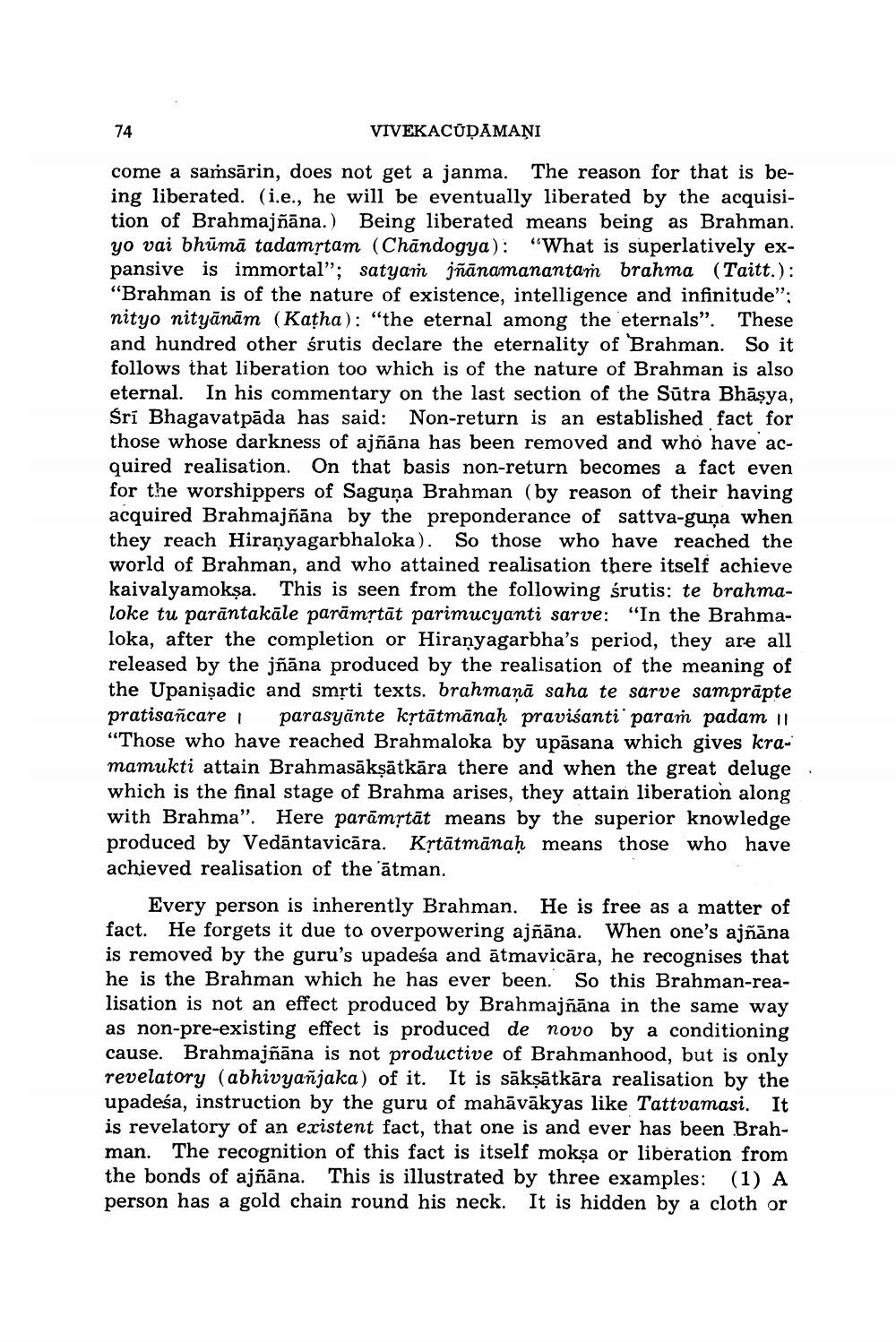________________
74
VIVEKACŪDAMAŅI
come a saṁsārin, does not get a janma. The reason for that is being liberated. (i.e., he will be eventually liberated by the acquisition of Brahmajñāna.) Being liberated means being as Brahman. yo vai bhūmā tadamtam (Chăndogya): “What is superlatively expansive is immortal"; satyam jñānamanantam brahma (Taitt.): "Brahman is of the nature of existence, intelligence and infinitude": nityo nityānām (Katha): "the eternal among the eternals". These and hundred other śrutis declare the eternality of Brahman. So it follows that liberation too which is of the nature of Brahman is also eternal. In his commentary on the last section of the Sūtra Bhāşya, Śri Bhagavatpāda has said: Non-return is an established fact for those whose darkness of ajñāna has been removed and who have acquired realisation. On that basis non-return becomes a fact even for the worshippers of Saguņa Brahman (by reason of their having acquired Brahmajñāna by the preponderance of sattva-guna when they reach Hiranyagarbhaloka). So those who have reached the world of Brahman, and who attained realisation there itself achieve kaivalyamokşa. This is seen from the following śrutis: te brahmaloke tu parāntakāle parāmộtāt parimucyanti sarve: "In the Brahmaloka, after the completion or Hiranyagarbha's period, they are all released by the jñāna produced by the realisation of the meaning of the Upanişadic and smrti texts. brahmanā saha te sarve samprāpte pratisañcarei parasyänte kştātmānaḥ pravisanti paraṁ padam 11 “Those who have reached Brahmaloka by upāsana which gives kramamukti attain Brahmasākṣātkāra there and when the great deluge which is the final stage of Brahma arises, they attain liberation along with Brahma". Here parāmrtāt means by the superior knowledge produced by Vedāntavicāra. Kștātmānaḥ means those who have achieved realisation of the 'ātman.
Every person is inherently Brahman. He is free as a matter of fact. He forgets it due to overpowering ajñāna. When one's ajñāna is removed by the guru's upadeśa and ātmavicāra, he recognises that he is the Brahman which he has ever been. So this Brahman-realisation is not an effect produced by Brahmajñāna in the same way as non-pre-existing effect is produced de novo by a conditioning cause. Brahmajñāna is not productive of Brahmanhood, but is only revelatory (abhivyañjaka) of it. It is sākşātkāra realisation by the upadeśa, instruction by the guru of mahāvākyas like Tattvamasi. It is revelatory of an existent fact, that one is and ever has been Brahman. The recognition of this fact is itself mokşa or liberation from the bonds of ajñāna. This is illustrated by three examples: (1) A person has a gold chain round his neck. It is hidden by a cloth or




